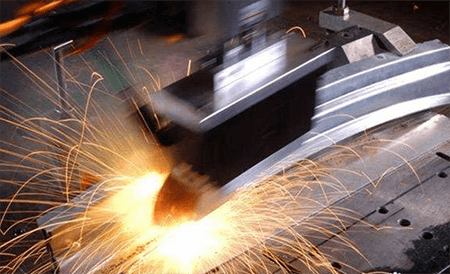CNC Milling: Precision, Speed, And Versatility For Complex Manufacturing Needs
CNC milling is one of the most essential and widely used processes in modern manufacturing. It is a type of machining that uses rotary cutters to remove material from a workpiece to create custom parts and components. Whether you’re creating intricate parts for the aerospace industry, high-precision components for medical devices, or automotive parts that require tight tolerances, CNC milling is often the method of choice. But what makes CNC milling so special? Why is it so indispensable in modern manufacturing? Let’s explore how this process has become a driving force in industries across the globe.

What is CNC Milling?
CNC milling refers to the process of using computer-controlled machines to cut and shape materials into specific parts. Unlike traditional milling, where the operator manually adjusts the machine settings, CNC milling machines are controlled by computer programs, allowing for high precision, automation, and repeatability.
The CNC milling process involves feeding a workpiece into a rotating cutter that removes material in a controlled manner. The machine can move along multiple axes (usually three, but sometimes five or more), allowing it to produce parts with complex shapes and designs.
Why CNC Milling is Critical in Manufacturing
CNC milling has revolutionized the manufacturing industry by offering a number of benefits that make it the go-to method for producing high-quality, complex parts. Here’s why CNC milling is so highly regarded:
- Precision and Accuracy: CNC milling machines can achieve extremely tight tolerances, often within microns. This makes them ideal for industries where high precision is essential, such as aerospace, automotive, and medical device manufacturing. CNC milling ensures that each part is produced to exact specifications, providing consistent and reliable results.
- Versatility in Material Processing: CNC milling can work with a wide range of materials, including metals, plastics, wood, and composites. Whether you’re creating parts from steel, aluminum, or a more exotic material like titanium, CNC milling is up to the task. This versatility makes it suitable for a wide range of industries and applications.
- Complex Geometries and Designs: CNC milling can produce parts with highly intricate and complex geometries that would be nearly impossible to achieve using traditional manual methods. Whether it’s creating curved surfaces, detailed engravings, or holes in unusual orientations, CNC milling can handle it all with ease.
- Automation and Consistency: Once a CNC milling machine is programmed, it can run autonomously, allowing for high-speed production with minimal human intervention. The machine repeats the same process with consistent accuracy, ensuring that every part produced meets the required standards.
- Cost-Effectiveness in High-Volume Production: Although the initial setup for CNC milling can be expensive, it becomes a cost-effective solution when producing large quantities of parts. The efficiency and speed at which CNC mills operate make them ideal for mass production.
Applications of CNC Milling
The applications of CNC milling are vast and diverse. Below are just a few examples of industries and sectors that rely on CNC milling:
- Aerospace: CNC milling is essential in the aerospace industry for manufacturing lightweight yet strong components such as turbine blades, engine parts, and structural elements. The precision required in aerospace manufacturing makes CNC milling the perfect choice for producing parts with high accuracy.
- Automotive: Automotive manufacturers use CNC milling to produce parts such as engine blocks, transmission components, and suspension systems. CNC milling allows for the mass production of parts with tight tolerances and high performance.
- Medical Devices: The medical field requires parts that meet stringent quality standards and precise specifications. CNC milling is used to produce surgical instruments, implants, and diagnostic equipment with extreme accuracy, ensuring they function flawlessly and safely.
- Electronics: CNC milling plays a crucial role in the electronics industry by manufacturing components like connectors, housings, and enclosures for various electronic devices. Precision is key, and CNC milling delivers the accuracy needed for these small, detailed components.
- Consumer Goods: From kitchen appliances to electronics, CNC milling is used to produce the parts that go into consumer goods. CNC machines can handle everything from simple shapes to complex parts with intricate designs, offering manufacturers a reliable tool for creating products that meet customer expectations.
Conclusion
CNC milling has become an essential tool in modern manufacturing. Its ability to produce precise, high-quality parts quickly and efficiently has made it a cornerstone of industries worldwide. From aerospace to medical devices, automotive to electronics, CNC milling continues to power innovation and ensure that products are made to the highest standards. As manufacturing technologies evolve, CNC milling will remain at the forefront of the industry, driving precision and versatility for years to come.
CNC Milling: Precision, Speed, And Versatility For Complex Manufacturing Needs